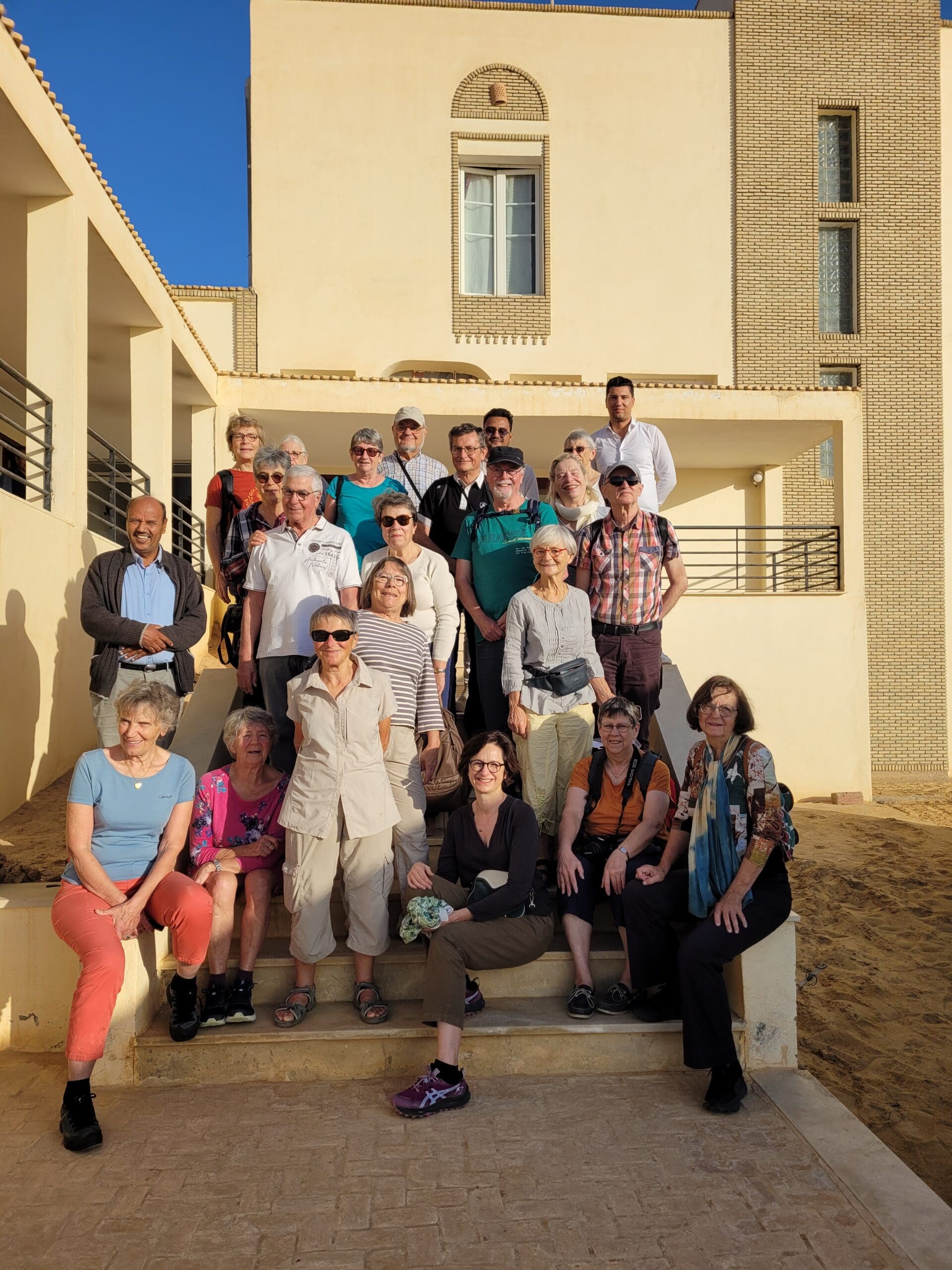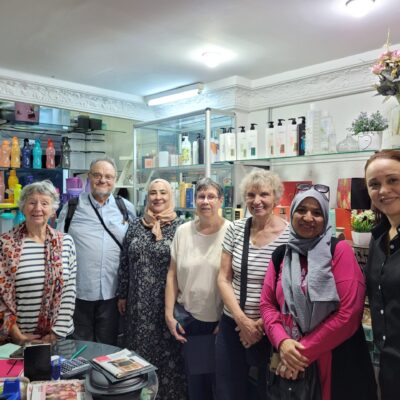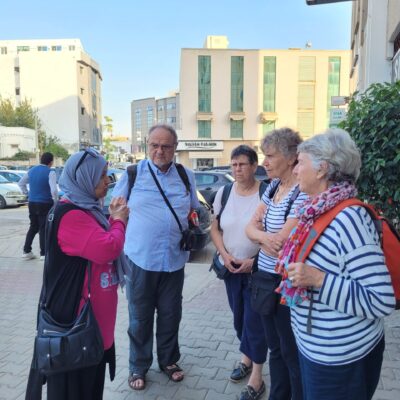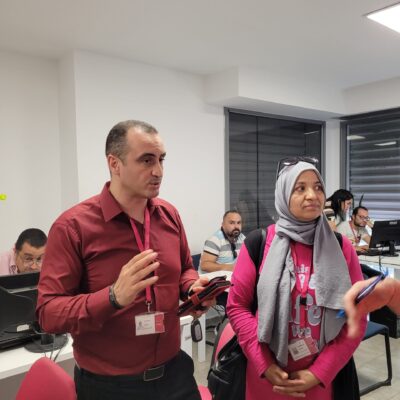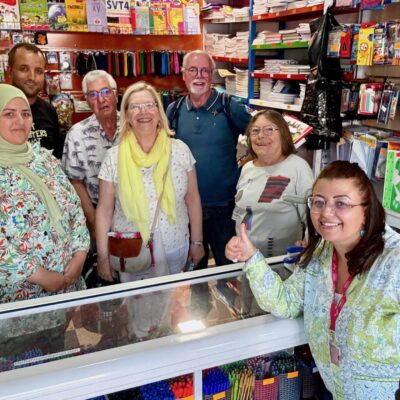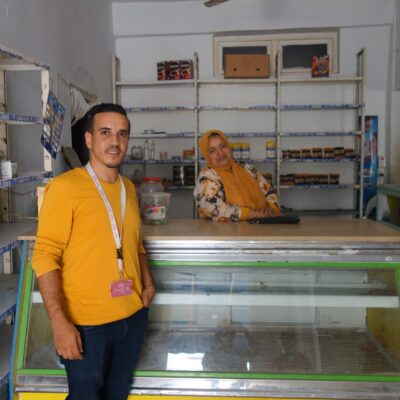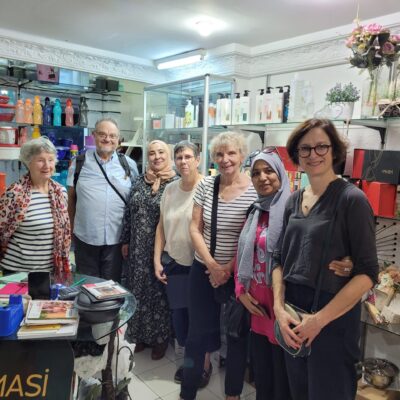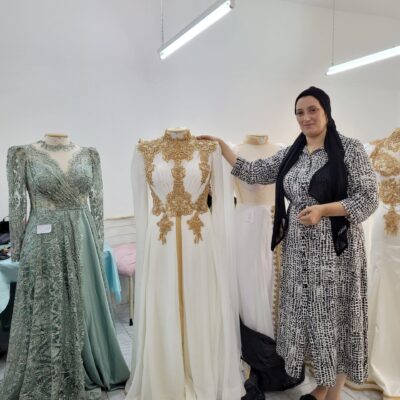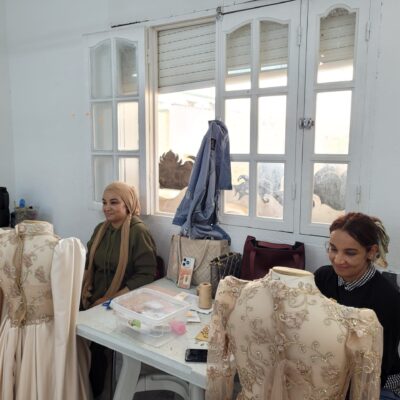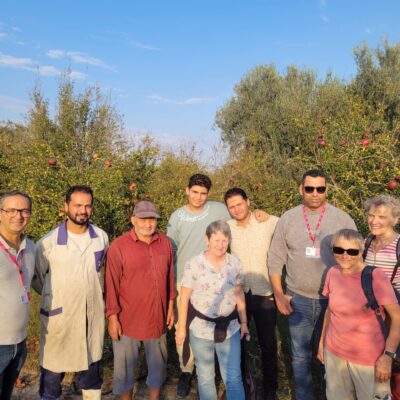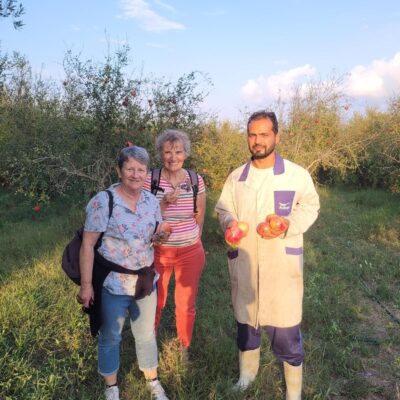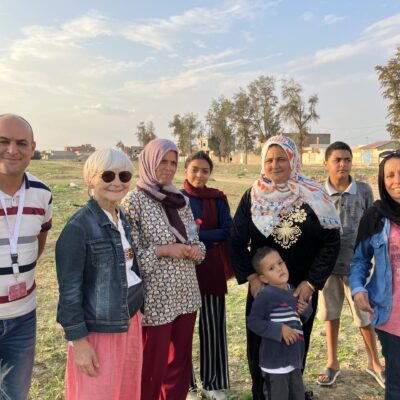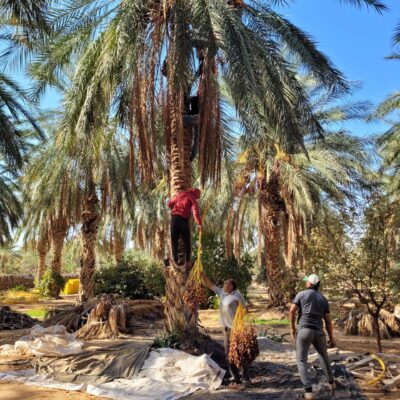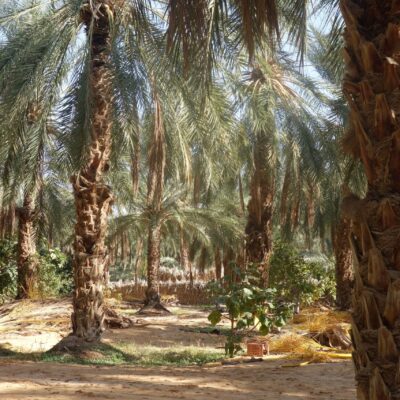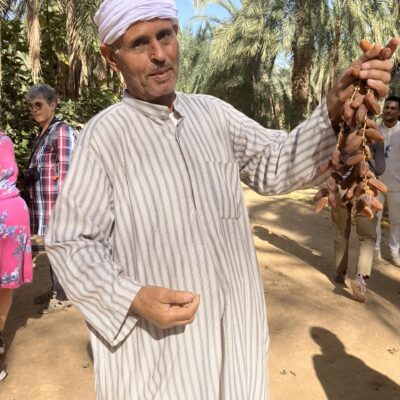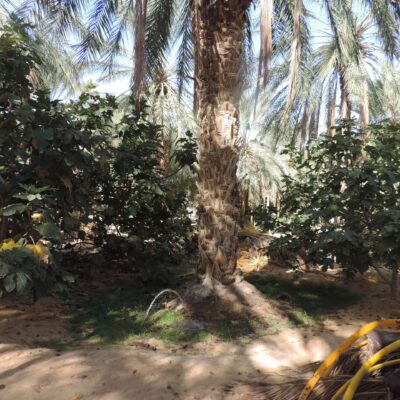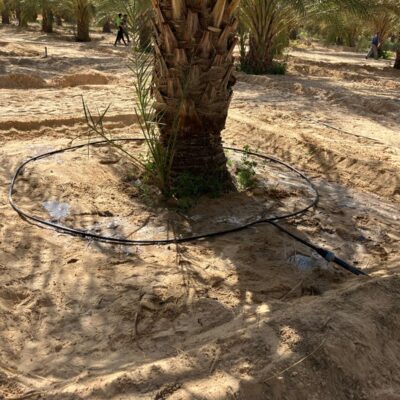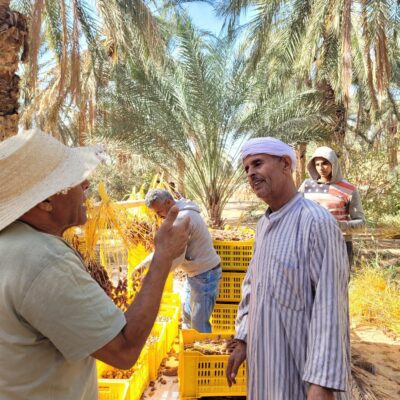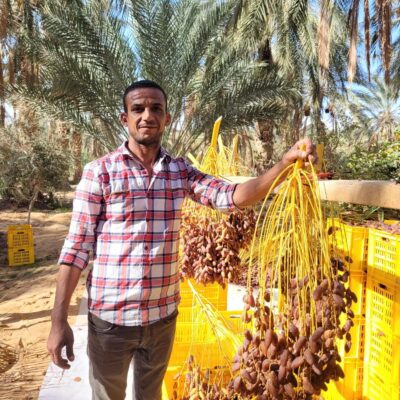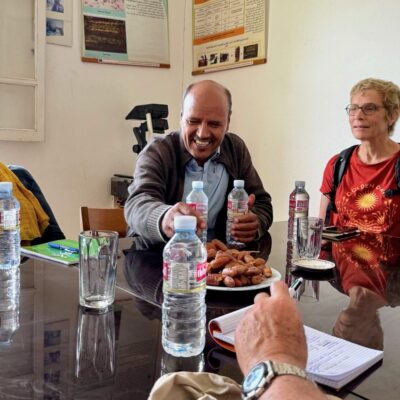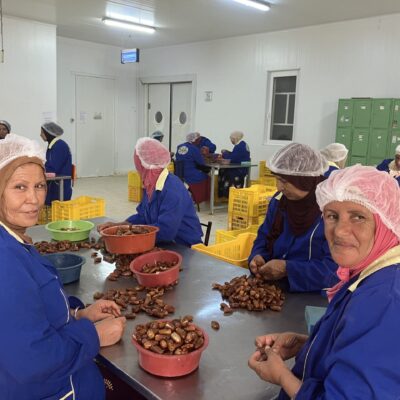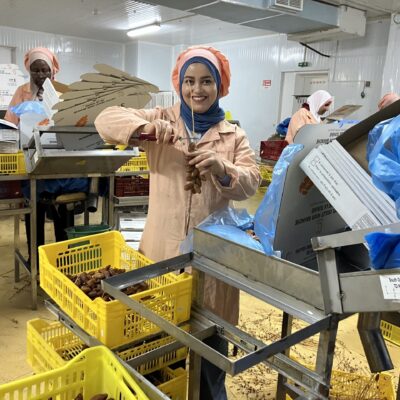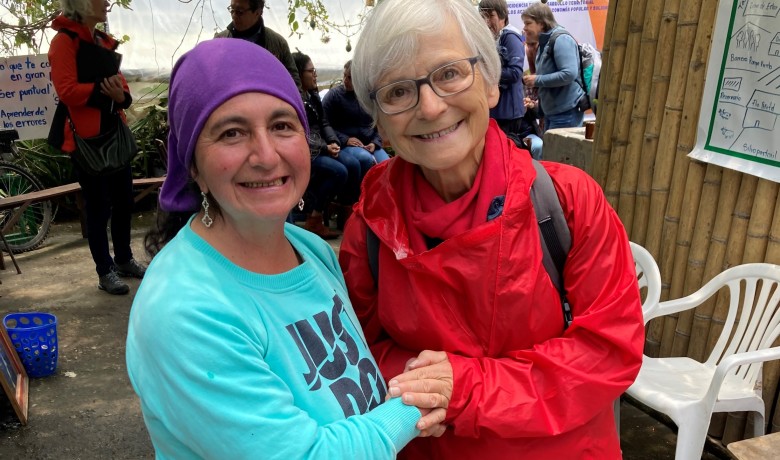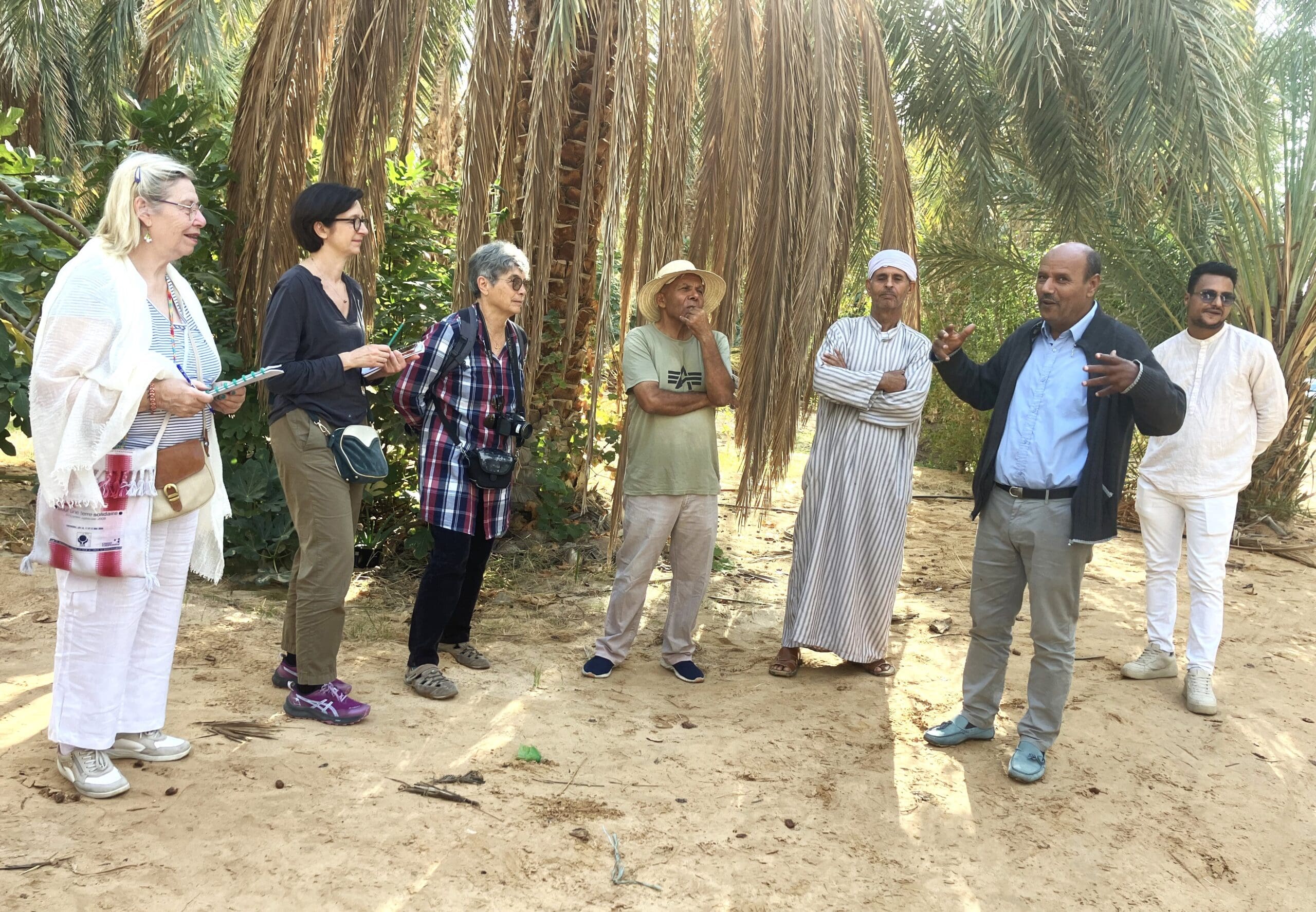
In Tunisia, we took part in a meeting of SIDI shareholders who had come to observe how their money is being used to help people, and to put SIDI’s generous ideas of ” supporting the poorest” in the context of complex day-to-day realities.
In this way, SIDI has brought together a very wide range of “partners”.
1- First and foremost, Enda Interarabe, a structure that was supported and accompanied in the past, no longer really needs SIDI today, but continues to share its practices with us, for example when it promotes training to refine the personal project of each of its managers, or when it compensates for the inadequacy of school structures in Tunisia, thus playing a part in the common good of this country by disseminating good practices.
It’s good to meet the Enda Interarabe team, and in particular its founder Essma Ben Hamida, a radiant person who maintains the philosophy of service to beneficiaries and demonstrates that money for life is real.
2- Final beneficiaries, supported by Enda TamweelSIDI’s partner microfinance institution, work in all sectors of economic life. With very short-term loans, they set up their own business.
After Covid, one woman was able to transform her business, keep her premises and become a distributor of aloe vera-based wellness products: “Enda Tamweel really followed me and facilitated credit as and when I needed it”. She’s more than satisfied, she’s grateful.
We’ve met so many other ewe breeders, weavers, jewelry and dress designers, and the manager of a computer store, who’s on her third loan. She has created a job, pays her own way and takes care of her parents. She was very proud to show us the new machine that facilitates her computer activity, even though she was trained “on the job”…
These beneficiaries, different in age, needs and activity, were able to set up and develop with very little capital, thanks to their courage and ideas. The exemplary nature of SIDI’s action is very appealing.
3- In the south of Tunisia, we discovered larger companies. These agricultural companies, which market and export dates, take risks in the service of desert farmers.
With the Beni Ghreb partner, the entrepreneur’s welcome offers a nice surprise: “Thanks to you, we’re still here!” In other words, the family-run business is still going strong, enabling men and women to make a living from their work.
One hundred and twenty-three farmers and their families live in the harsh desert environment as the drought continues to take its toll…
In this oasis agriculture, attentive support is needed to solve every new problem, whether it’s drought, with its crucial corollary of water supply, Covid, insect pests, or switching to organic farming, which is more expensive than chemicals. At every stage, SIDI never let go of the company, playing the solidarity card to such an extent that the debt was transformed into a shareholding in the company’s capital. High-quality Deglet Nour dates are produced and exported.
The partnership with the farmers has enabled us to transform the irrigation model and add shrub crops, some market gardening and livestock farming to the palm trees, thereby increasing their income from dates.
Employment is maintained for the men who climb the trees several times a year (hand pollination, cleaning, pest protection and harvesting) and for the women who sort, classify, process and package the dates…
Then, with our partner South Organic, another organic date marketing company, we discovered an even more technical operation, with the presence of young women engineers, who enable scientific water management and the absence of chemical fertilizers in this pilot orchard, where all the region’s producers can come and learn these techniques. Here again, many people are employed in agricultural production and then in processing for shipment, often working for the company for several years and taking pride in their work.
In conclusion, Sidi is at the service of people, the economy and the earth. Here, the future is preserved, with those who stand up for themselves by raising sheep, sewing dresses, developing IT or growing dates. We keep hope alive…
And if the word shareholder is a dirty word, let’s be proud to be a shareholder of SIDI, which puts money at the service of people.
If the Gospel makes sense to you, we’ve found that SIDI brings the Parable of the Talents to life. Money lent, repaid and lent again…
Raymonde Richard and Françoise Michaud
Members of the Board ofESD, Epargne Solidarité Développement (SIDI’s association of individual shareholders)

